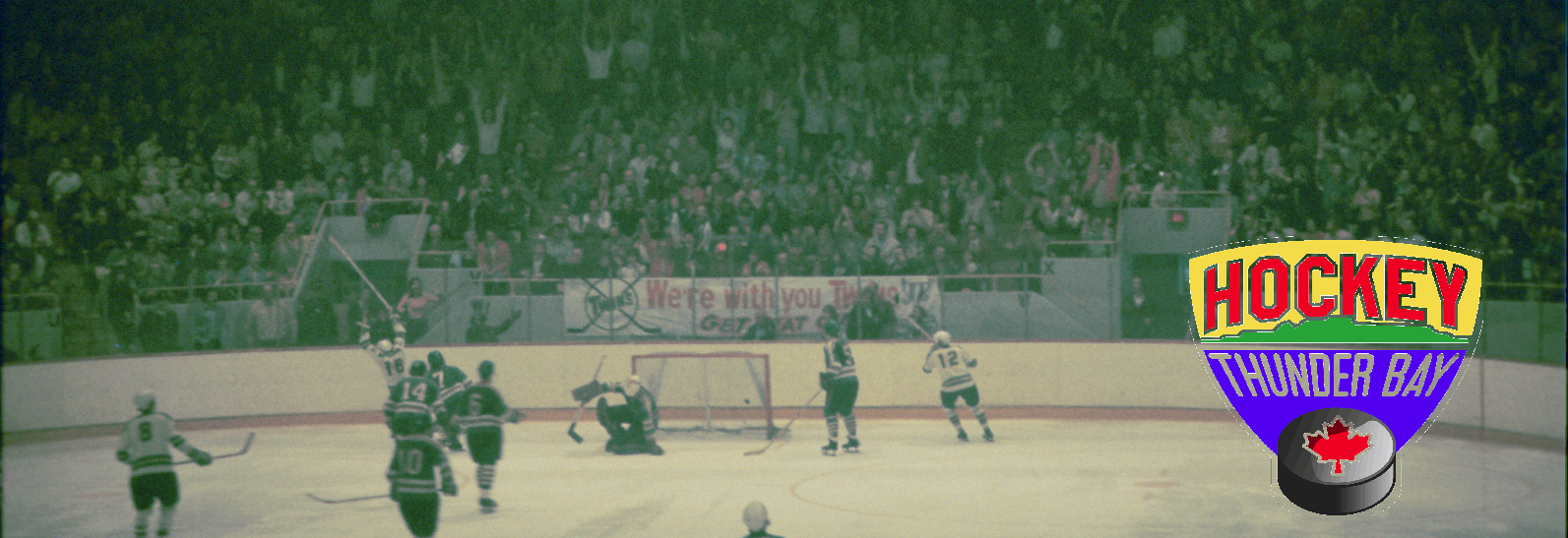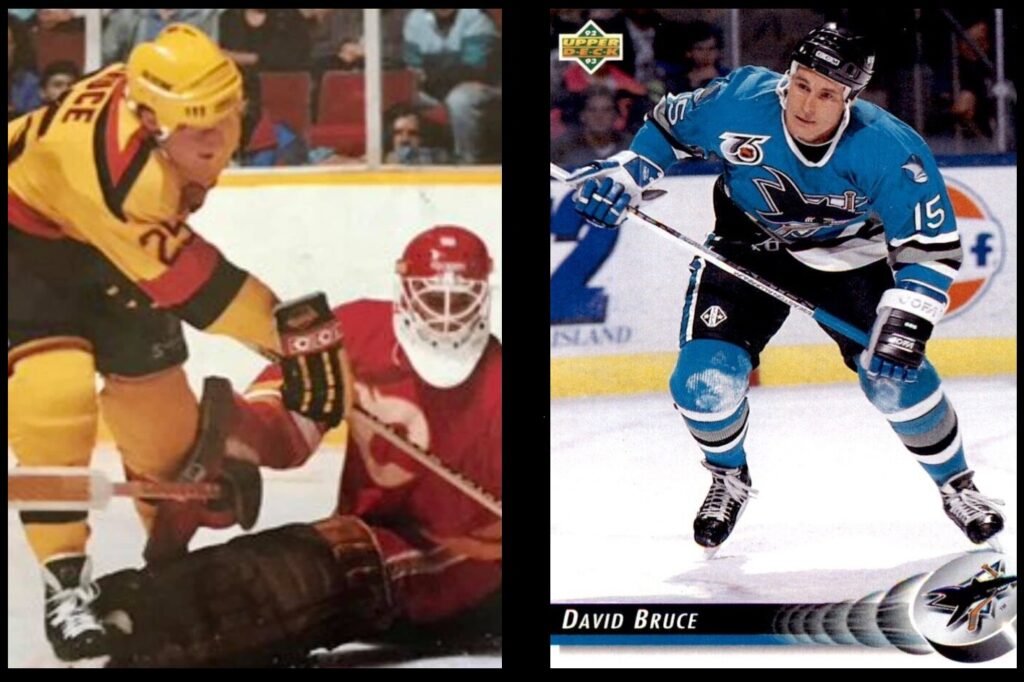By Tom Annelin / HockeyThunderBay.com
 THE ledger of the players from Thunder Bay who went on to achieve success in the game remains lengthy and storied.
THE ledger of the players from Thunder Bay who went on to achieve success in the game remains lengthy and storied.
One of those was a goal-scoring, hard-nosed winger – David Bruce.
Playing his minor hockey locally, Bruce initially made his mark skating for the Current River Comets team that went on to represent the Thunder Bay Amateur Hockey Association at the 1981 Air Canada Cup national midget championship in Halifax, N.S.
There he notched multiple markers, including a hat trick in a 5-3 victory over Saint John, N.B., to help the Comets finish second in their division, and advance to the semifinals in the 12-team event.
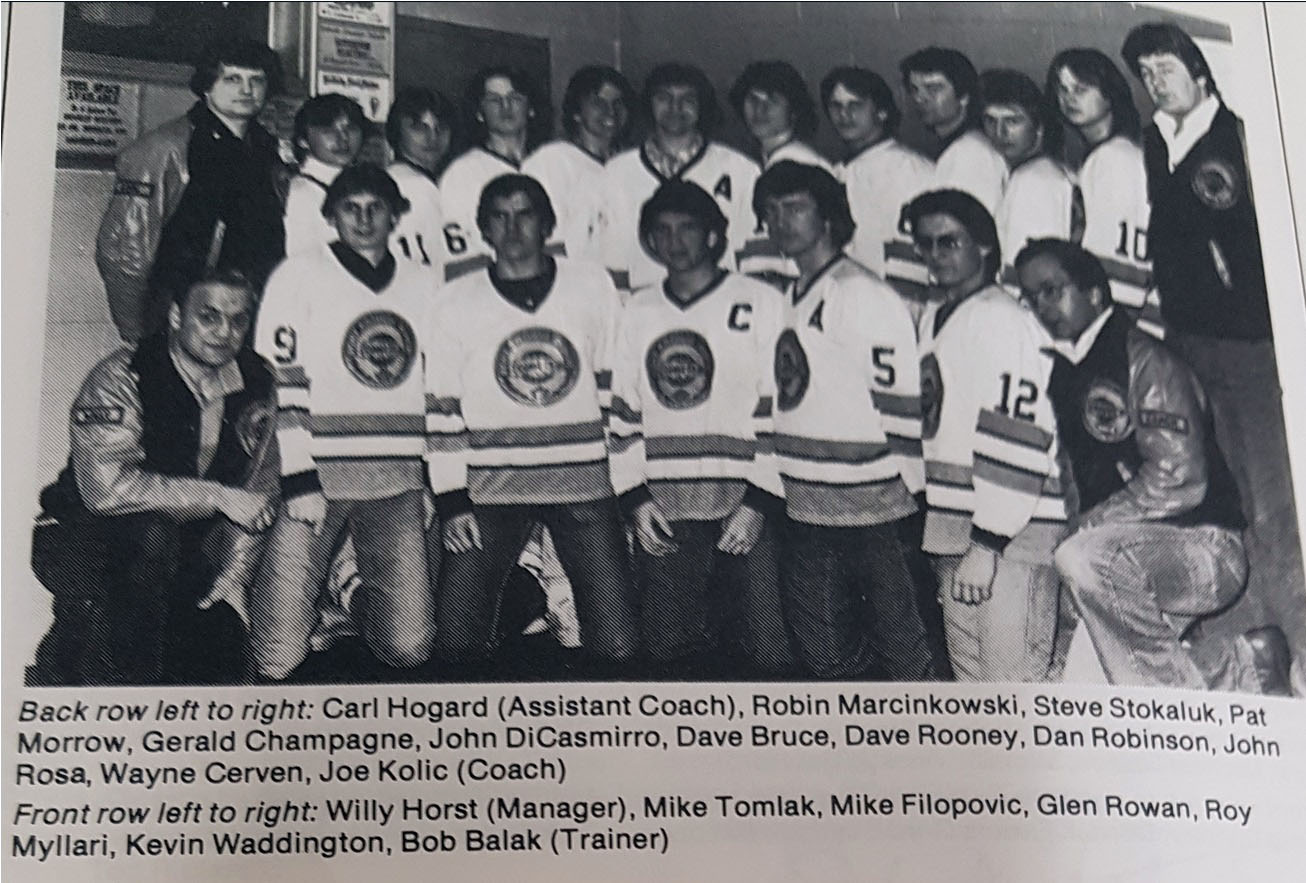
After winning their quarter-final against a club from P.E.I., their luck ran out in a semifinal setback versus the Kitchener Greenshirts before falling to the Antigonish Novas from Nova Scotia in the bronze medal match-up.
Moving on that fall, the 17-year-old Bruce earned a place on the roster of the Burger King Kings junior side, that competed in the Thunder Bay Hockey League.
Never seen before, or since, across Canada, the HTBL boasted an unprecedented four levels of clubs competing against each other with the Thunder Bay Twins (senior); Bay Beverage Blazers (intermediate), Lakehead Nor’Westers (university) and Kings (junior) taking part.
The Dave Siciliano-coached Kings, who featured four future NHLers in their line-up in Bruce, Norm Maciver, Mike Tomlak and Ron Talakoski, went on to surprise their older competition by winning the TBHL title.
Bruce went on to finish in a tie for fifth in league scoring on 11 goals and 24 assists.
Despite impressing offensively and physically, he slipped through the cracks when the time came for the 1982 Ontario Hockey League Priority Selection, as he was not drafted.
However, after previous tryouts with the Belleville Bulls and the Winnipeg Warriors (WHL), the keen eye of highly-respected Kitchener Rangers northwestern Ontario scout Graham (Porky) McLeod knew a good player when he saw it and pushed hard with the Kitchener brass to bring him in.
When there, Bruce did not disappoint, collecting 71 points in 67 outings, including 36 tallies, along with 199 penalty minutes in his rookie campaign.
Later, the 1983-84 Rangers’ roster featured a solid Lakehead contingent, much due in part of McLeod’s scouting acumen.
Joining Bruce on the team, during various parts of that year, were Greg Puhalski; Garnet McKechney; David Latta; Peter Bakovic and David Whistle.
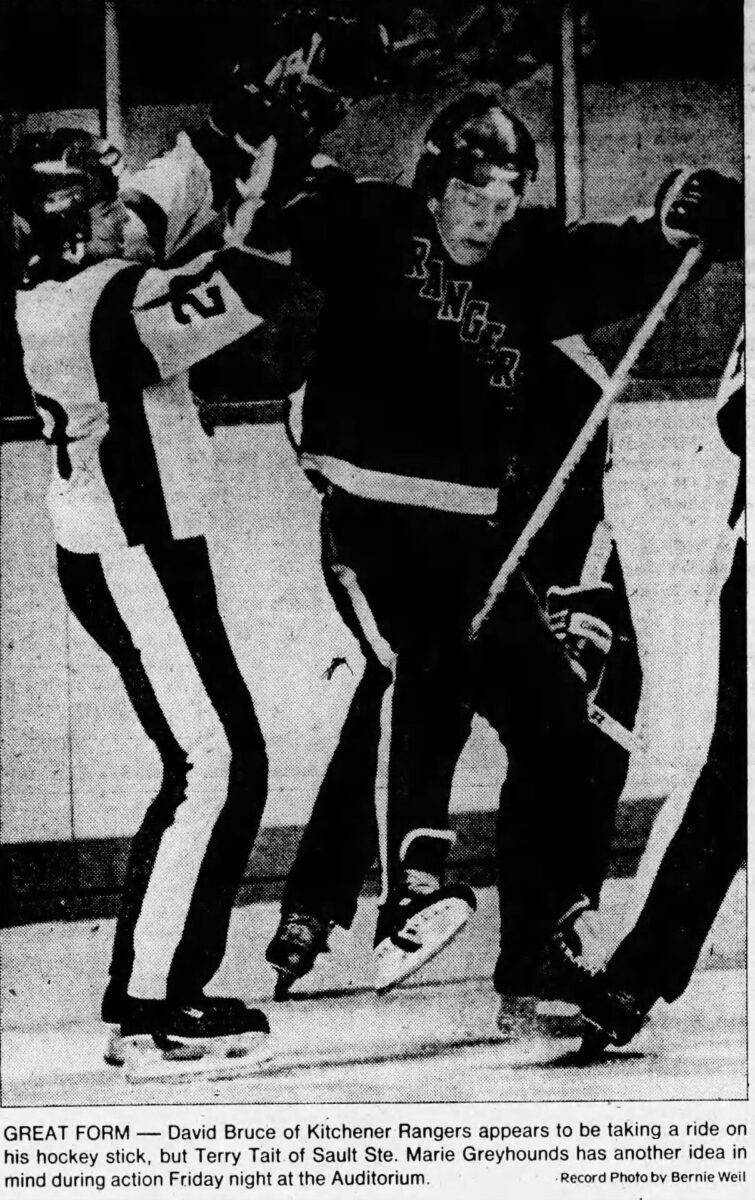 Finishing fourth in club offensive numbers between Puhalski (30G-69A-99PTS) and McKechney (31G-45A-76PTS); Bruce pumped in 52 goals and helped set-up 40 others for 92 points, while topping the team in PIMS with 203.
Finishing fourth in club offensive numbers between Puhalski (30G-69A-99PTS) and McKechney (31G-45A-76PTS); Bruce pumped in 52 goals and helped set-up 40 others for 92 points, while topping the team in PIMS with 203.
Despite falling to the Ottawa 67s in the OHL final, Kitchener’s campaign continued as host of the 1984 Memorial Cup.
After going unbeaten in the round robin, the Rangers had another date with the 67s for the national junior championship.
Again though, Brian Kilrea-led Ottawa would prevail to win the Memorial Cup, even with the Bruce-Puhalski-McKechney trio combining for 16 points in four games, between them.
Of note, on that 67s squad was Thunder Bay defenceman Roy Myllari, along with MVP Adam Creighton, the son of Lakehead hockey great Dave Creighton.
No longer going unnoticed, Bruce had earlier been selected in the second round, 30th overall, by the Vancouver Canucks in the 1983 NHL Draft.
He would turn pro with the Canucks’ AHL affiliate, the Fredericton Express, where over the parts of four seasons, he registered 124 points.
In that span, Bruce would also appear in 143 games with the Canucks.
A call-up from the Express in December of 1986, he notched his first two NHL tallies in a win at Chicago.
Later joining the Milwaukee Admirals of the International Hockey League, he was named a first team all-star there, averaging over a point-per-game and scoring 40 times.
Bruce then went on to sign as a free agent with the St. Louis Blues in the summer of 1990.
While suiting up in a dozen contests with the Blues, most of his time was spent in the IHL as a member of the Peoria Rivermen, where he had his best single-season as a professional.
Lighting it up in Peoria, the rugged, goal-scoring winger banged an IHL-best 64 goals, to go with 52 assists, in being named a first team all-star once more and adding league Most Valuable Player honours to his resume.
In the playoffs, Bruce was equally stellar as he was a goal-a-game performer, with 18 is as many outings, and leading all point-getters with 29 in powering the Rivermen to an IHL Turner Cup title.
Going on to be claimed by the San Jose Sharks in the 1991 NHL Expansion Draft, he would see another 79 NHL games there.
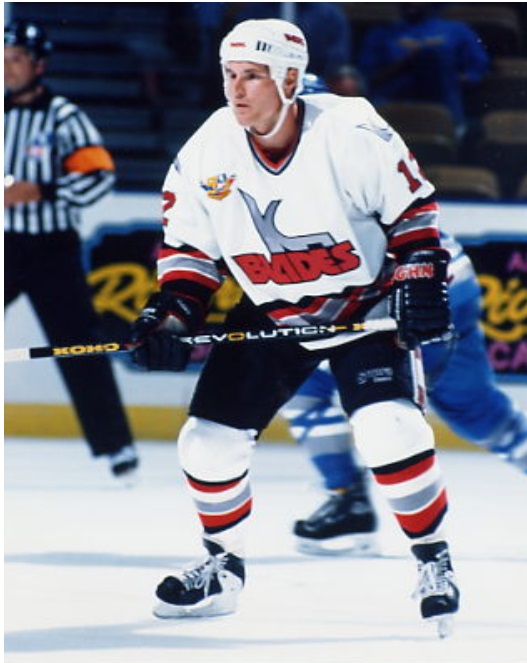 Following that came five more productive years in the AHL, this time with the Kansas City Blades, that saw him score 165 times.
Following that came five more productive years in the AHL, this time with the Kansas City Blades, that saw him score 165 times.
Wrapping up his career, with a season in Germany, he would hang up the blades in the spring of 1999.
Seemingly worthy of induction into the Northwestern Ontario Sports Hall of Fame, David Bruce was a key contributor on nearly every team he played on.
Finishing with 957 points, in 1,075 games played, that saw him fire 525 pucks into the net of opposing teams, while amassing nearly 2,000 penalty minutes, Bruce’s career numbers leave little doubt he ranks among the list of vaunted hockey stalwarts from Thunder Bay.
